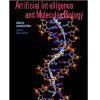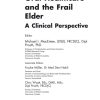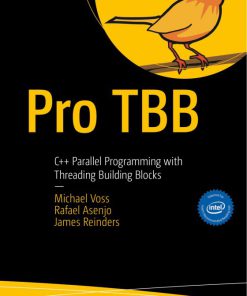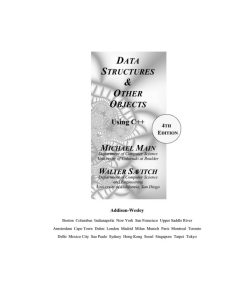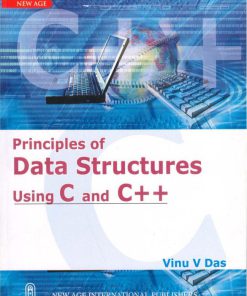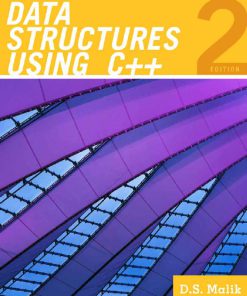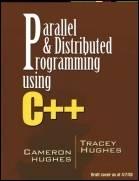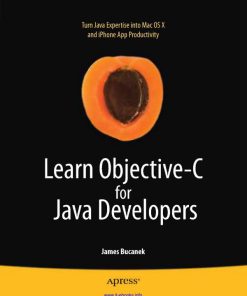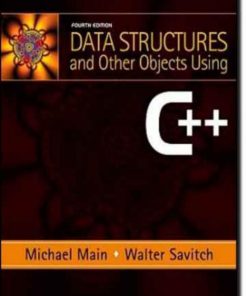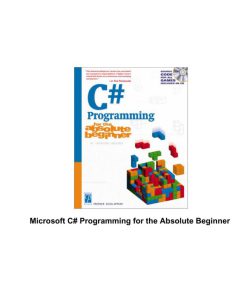Data Parallel C Mastering DPC for Programming of Heterogeneous Systems using C 1st edition by James Reinders, Ben Ashbaugh, James Brodman, Michael Kinsner, John Pennycook, Xinmin Tian ISBN 1484255739 978-1484255735
$50.00 Original price was: $50.00.$25.00Current price is: $25.00.
Authors:James Reinders , Series:Computer Science [180] , Author sort:Reinders, James , Languages:Languages:eng , Published:Published:Oct 2020 , Publisher:Apress
Data Parallel C++ Mastering DPC++ for Programming of Heterogeneous Systems using C++ 1st edition by James Reinders, Ben Ashbaugh, James Brodman, Michael Kinsner, John Pennycook, Xinmin Tian – Ebook PDF Instant Download/Delivery. 1484255739 978-1484255735
Full download Data Parallel C++ Mastering DPC++ for Programming of Heterogeneous Systems using C++ 1st edition after payment
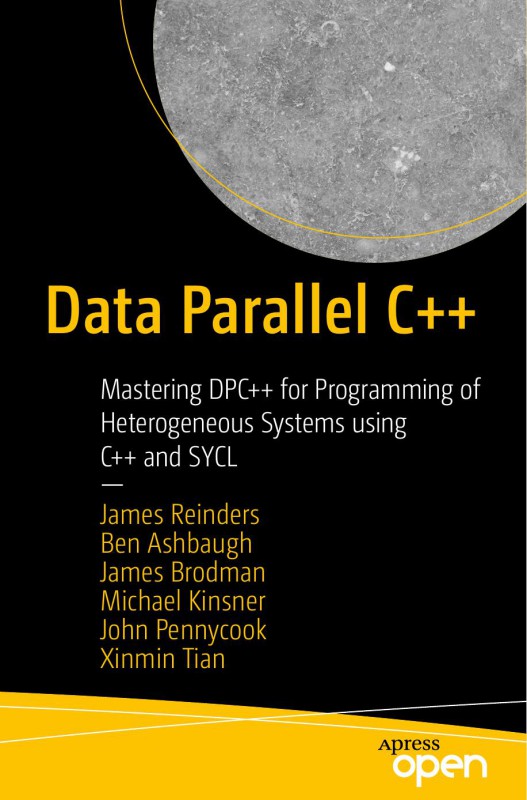
Product details:
ISBN 10: 1484255739
ISBN 13: 978-1484255735
Author: James Reinders, Ben Ashbaugh, James Brodman, Michael Kinsner, John Pennycook, Xinmin Tian
Learn how to accelerate C++ programs using data parallelism. This open access book enables C++ programmers to be at the forefront of this exciting and important new development that is helping to push computing to new levels. It is full of practical advice, detailed explanations, and code examples to illustrate key topics.
Data parallelism in C++ enables access to parallel resources in a modern heterogeneous system, freeing you from being locked into any particular computing device. Now a single C++ application can use any combination of devices―including GPUs, CPUs, FPGAs and AI ASICs―that are suitable to the problems at hand.
This book begins by introducing data parallelism and foundational topics for effective use of the SYCL standard from the Khronos Group and Data Parallel C++ (DPC++), the open source compiler used in this book. Later chapters cover advanced topics including error handling, hardware-specific programming, communication and synchronization, and memory model considerations.
Data Parallel C++ provides you with everything needed to use SYCL for programming heterogeneous systems.
What You’ll Learn
- Accelerate C++ programs using data-parallel programming
- Target multiple device types (e.g. CPU, GPU, FPGA)
- Use SYCL and SYCL compilers
- Connect with computing’s heterogeneous future via Intel’s oneAPI initiative
Who This Book Is For
Those new data-parallel programming and computer programmers interested in data-parallel programming using C++.
Data Parallel C++ Mastering DPC++ for Programming of Heterogeneous Systems using C++ 1st Table of contents:
Preface
- Introduction to the Book
- Target Audience and Prerequisites
- Overview of DPC++ and Heterogeneous Computing
- How to Use This Book
Part 1: Introduction to Data Parallel C++ (DPC++)
Chapter 1: Understanding Heterogeneous Systems
- What Are Heterogeneous Systems?
- The Need for Parallelism in Modern Computing
- Types of Hardware (CPUs, GPUs, FPGAs) and Their Characteristics
- Introduction to Data Parallelism
Chapter 2: Overview of DPC++ and SYCL
- The Evolution of Data Parallel C++
- Key Features and Benefits of DPC++
- SYCL and its Role in DPC++
- Comparison with Other Parallel Programming Models (CUDA, OpenCL, OpenMP)
Chapter 3: Setting Up the DPC++ Development Environment
- Installing DPC++ and Required Tools
- Setting Up Intel oneAPI and Intel DevCloud
- Writing Your First DPC++ Program
Part 2: Core Concepts in DPC++ Programming
Chapter 4: Basic Syntax and Concepts in DPC++
- C++ Features in DPC++: Classes, Templates, and Standard Libraries
- Data Parallel Constructs in DPC++
- Work Groups, Work Items, and Kernels
- Introduction to Buffers and Queues in DPC++
Chapter 5: Writing and Running Simple DPC++ Programs
- Creating DPC++ Kernels
- Using Buffers for Data Storage and Transfer
- Submitting Commands to the Queue
- Debugging and Optimizing Basic DPC++ Programs
Chapter 6: Memory Management in DPC++
- Memory Model in DPC++
- Understanding Shared and Private Memory
- Unified Shared Memory (USM) and Buffer Management
- Efficient Memory Access and Optimization Strategies
Part 3: Advanced DPC++ Programming
Chapter 7: Managing Parallelism with Work Groups and Sub-groups
- Understanding Work Groups and Work Items
- Synchronization within Work Groups
- Sub-group Programming in DPC++ for Efficient Parallelism
Chapter 8: Handling Complex Data Parallel Algorithms
- Parallel Prefix Sum (Scan) and Other Algorithms
- Implementing Parallel Reductions and Map-Reduce
- Memory Access Patterns and Optimizations for Performance
Chapter 9: Optimizing DPC++ Code for Different Architectures
- Optimizing Code for CPU, GPU, and FPGA Targets
- Understanding Hardware-Specific Optimizations
- Tuning DPC++ Programs for Performance on Intel Processors and GPUs
Part 4: Integrating DPC++ with Other Tools and Libraries
Chapter 10: Using DPC++ with C++ Standard Libraries
- Integration with the C++ Standard Template Library (STL)
- Parallel Algorithms in C++17 and DPC++
- Leveraging DPC++ for STL Parallelism
Chapter 11: Advanced Features in DPC++: Interoperability and Extensions
- Interoperating DPC++ with CUDA and OpenCL
- DPC++ Extensions for Machine Learning and AI Applications
- Using DPC++ for Data Analytics and Big Data Processing
Chapter 12: Debugging, Profiling, and Performance Tuning
- Debugging DPC++ Programs: Tools and Techniques
- Profiling DPC++ Programs with Intel VTune
- Performance Tuning for Multi-Architecture Applications
- Best Practices for Debugging and Optimizing DPC++ Applications
Part 5: Real-World Applications of DPC++
Chapter 13: Developing High-Performance Applications
- Building Parallel Scientific Computing Applications
- Implementing Image and Signal Processing Algorithms
- Using DPC++ for High-Performance Computing (HPC) Workloads
Chapter 14: Machine Learning and DPC++
- Accelerating Machine Learning Workflows with DPC++
- Implementing Deep Learning Algorithms with DPC++ on GPUs
- Interfacing DPC++ with Popular ML Frameworks (TensorFlow, PyTorch)
Chapter 15: Case Study: Heterogeneous Computing for Data Science
- Solving Real-World Problems with DPC++ in Data Science
- A Case Study of DPC++ for Data Analytics
- Scaling Machine Learning Models Using DPC++ on GPUs and FPGAs
Conclusion
- Recap of Key Concepts in DPC++
- Best Practices for Writing High-Performance Parallel Code
- The Future of DPC++ and Heterogeneous Computing
Appendices
- A. Further Reading on DPC++ and SYCL
- B. Useful Tools and Resources for DPC++ Development
- C. Common Errors and Troubleshooting Tips
References
Index
People also search for Data Parallel C++ Mastering DPC++ for Programming of Heterogeneous Systems using C++ 1st:
data parallel c++ mastering dpc++ for programming
data parallel c++ pdf
data parallel c++ github
data parallel c++
mastering dpc++
You may also like…
eBook PDF
Principles of Data Structures Using C and C 1st Edition by Vinu Das ISBN 8122418589 9788122418583


